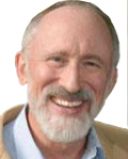Beauty
Walt Whitman, Born 200 Years Ago, Offers a Key Lesson
Better than anyone before or since, Whitman expressed natural connectedness.
Posted June 16, 2019
We are just a few weeks past the 200th birthday of America’s greatest poet, Walt Whitman. Beyond his pure literary genius, Whitman was an ecstatic voice for the connectedness of living things, a recognition that—as I have been pointing out in previous posts—is shared by Buddhism and biology. Also physics. Thus, no less a scientist than Albert Einstein noted, “part of a whole, called by us the ‘Universe’—a part limited in time and space. [Each person] experiences himself, his thoughts, and feelings, as something separated from the rest—a kind of optical delusion of his consciousness.” Einstein went on to observe that:
This delusion is a kind of prison for us, restricting us to our personal desires and to affection for a few persons nearest us. Our task must be to free ourselves from this prison by widening our circles of compassion to embrace all living creatures and the whole of nature in its beauty.
One needn’t be a Buddhist master, or a biologist, or a pioneering physicist, to feel a responsibility to embrace all living creatures and the whole of nature. Moreover, this responsibility needn’t be embraced with a sense of dutiful reluctance, but, rather, as Einstein proposed, it lends itself equally to an appreciation of its beauty. It is an undertaking worthy of poetic joy.
Which brings us back to Whitman, who contained all of these instincts, to which he added a heady dose of not-very-Buddhistic effervescent egotism, notably in his masterwork, “The Song of Myself,” which begins—true to its title—as follows: “I celebrate myself, and sing myself/ and what I assume you shall assume.” Whitman then segues to the following crucial recognition, worthy of a biologist, physicist, and Buddhist: “For every atom belonging to me as good belongs to you.”
Later, he celebrates the wonder and beauty of the interconnected natural world:
“I believe a leaf of grass is no less than the journeywork of the stars,/ And the pismire is equally perfect, and a grain of sand, and the egg of the wren,/ And the tree-toad is a chef-d’oevre for the highest,/ And the running blackberry would adorn the parlors of heaven,/ And the narrowest hinge in my hand puts to scorn all machinery,/ And the cow crunching with depress'd head surpasses any statue,/ And a mouse is miracle enough to stagger sextillions of infidels.”
Whitman then joyously acknowledges his own debt to the stuff of shared reality, with more than a passing nod to evolutionary unity as well: “I find I incorporate gneiss, coal, long-threaded moss, fruits, grains, esculent roots,/ And am stucco'd with quadrupeds and birds all over.”
Finally, in perhaps the literary world’s best, briefest, and deepest statement of how self merges into non-self, and thus without boundaries and without regret into everything (but assuredly not nothing), we read: “I bequeath myself to the dirt to grow from the grass I love,/ If you want me again look for me under your boot soles.”
David P. Barash is professor of psychology emeritus at the University of Washington. Among his recent books is Through a Glass Brightly: using science to see our species as it really is (2018, Oxford University Press).


